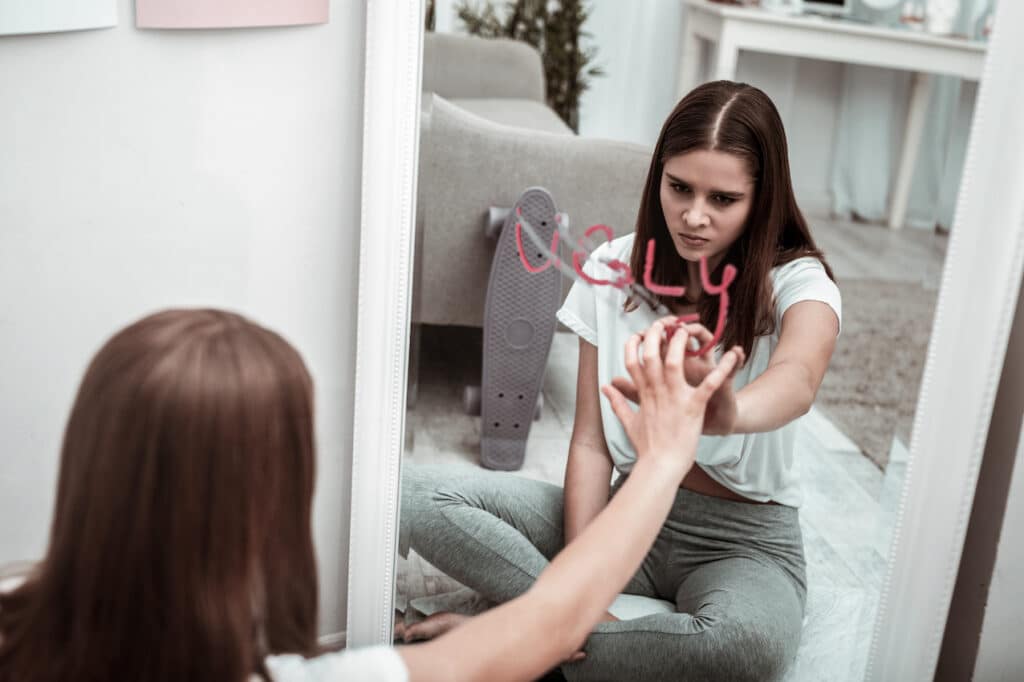A Focus On Student Mental Health

At Santa Maria College, we continue our focus on our Mental Health Strategy, where we aim to work together to help students develop the skillset they need to manage their wellbeing.
For those of you who are less familiar with our strategy, some key achievements include:
- The review, scope, and sequence of all of our Pastoral Care programs from Years 5 – 12.
- The addition of a Wellbeing Captain to the Student Leadership team, along with the inclusion of the Mental Health Ambassadors as part of the co-curricular program, provides students with a voice in this space.
- The introduction of a digital wellbeing platform for students currently being rolled out from Years 7 to 10.
- A range of professional development opportunities for staff and upskilling sessions for parents conducted by College psychologists to support the learning that is occurring for students as part of their PCT programs.
- The creation of the Health Services Team and the development of processes to support students who experience challenges in this area.
Our current focus areas to support good mental health include:
- The implementation of staff professional learning of Dialectic Behaviour Therapy ahead of sharing this learning with our students.
- The launch of a new web portal with access to a wide range of trusted resources, courses, and information.
- Providing multiple opportunities for students to engage in learning outside the classroom through events such as Mental Health Fitness and Body Kind weeks.
- Continuing to create a culture where conversation and discussion around mental health are encouraged.

Topics in focus
There are several issues we focus on directly at the College, as we know they impact our students – one of these is body image. The data we collected as part of our initial Mental Health Strategy survey placed it as one of the top three concerns for girls in Years 7, 9, 10, 11 and 12, so if your daughter struggles with this, she is not alone. Our girls are bombarded with lots of potentially negative messaging, more now than ever before with the advent of social media. Still, the reality is that the list of factors that can contribute is far more complex and can include:
- Biological factors such as the timing of puberty, body size, family history and genetics
- Environmental factors such as social media and wider media
- Psychological factors such as self-esteem and personality traits such as perfectionism
- Social factors such as peers, family and wider socio-cultural pressures or expectations
Parents can help to build a positive sense of self-esteem and body image with their daughters, and you may want to consider the following tips:
- Lead by example – parents are role models to their children. Does she watch or hear you verbalising discontent or confidence about being in your own skin?
- Be mindful of the language around bodies. Be cautious around commenting about the appearance of bodies (others and your daughter’s). Instead, focus on the things that our bodies can do! Exercise can be promoted in this way by reinforcing the benefits of strength, endurance, and health rather than exercising for the purpose of weight loss.
- Avoid referring to foods as ‘good’ or ‘bad’ as terms such as these can contribute to feelings of guilt and shame. Instead, promote eating habits and foods that fuel our body to give it what it needs.
- Enjoy mealtimes as a family. This can often be difficult to achieve in our busy lives, but the importance of this action cannot be overlooked. It creates a sense of connection, stability, and routine. Remind her that she is enough! Praise her for her strengths and ensure that these are not based on her appearance, and avoid comparing her to others. Steer away from bonding experiences that are focused on appearance, such as trips to the salon for eyelash extensions. The risk here is the message that she is not enough without them. Building a sense of self-esteem from within is important for the longevity of a sense of self-worth.
- Know where to get help. Watch for warning signs of low mood or disordered eating (as this can be how poor body image and self-esteem present) and seek professional help early.
Resources for Parents
There is a plethora of online resources that you can access as a parent. The Dove self-esteem project is just one example if this is an area you’d like to learn more about.
The Butterfly Foundation has also recently advertised a parent webinar. They are a trusted source of information, and whilst this event is not connected to the College, we do use some of the Butterfly Foundation resources when addressing this topic with students. If this is something of interest, then more details can be found here.
To download a copy of our Mental Health Strategy, click here.

Lee-Elle’s Insights from the ‘Make it 16’ Forum
Lee-Elle Cooper is a passionate Year 12 student who advocates for youth engagement and political participation. She has recently returned from the Make It 16 Forum in Canberra.

With Laurissa Knowles From Valley Depths to Mountain Peaks (1993)
Laurissa Knowles (1993) has had an incredible career journey so far, from Santa Maria College Teacher to Celebrant and Councillor.

Elevating Spaces: Diana Ellis’ Signature Touch & Architecture Magic
What happens when you mix a love for art, travel, nature, and creativity with construction and building? You get the essence of Diana Ellis’ career!
- Featured, Learning for Life
Author: Santa Maria College
Santa Maria College is a vibrant girls school with a growing local presence and reputation. Our Mission is to educate young Mercy women who act with courage and compassion to enrich our world. Santa Maria College is located in Attadale in Western Australia, 16 km from the Perth CBD. We offer a Catholic education for girls in Years 5 – 12 and have 1300 students, including 152 boarders.







